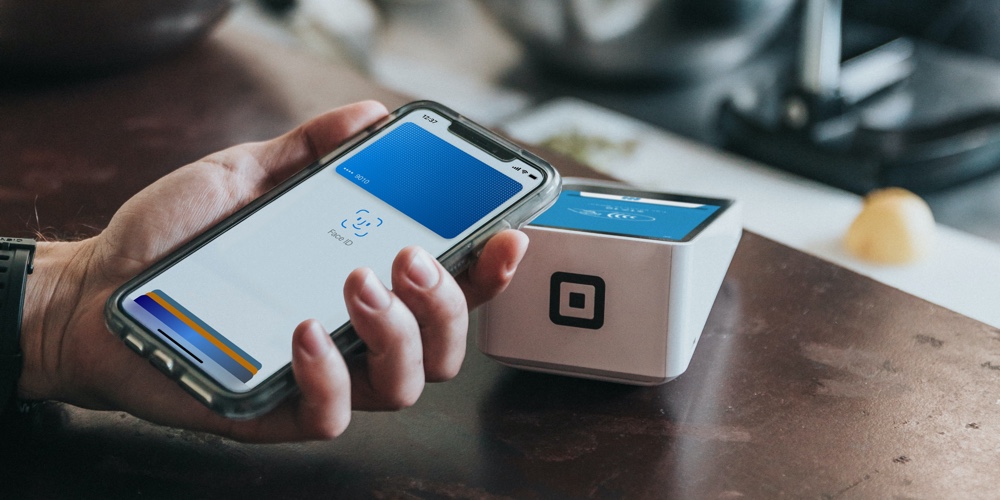Apple unveiled another surprise on June 7, 2021. They announced a new digital identity card to be housed within the Apple Wallet. Apple revealed the new technology at the online Worldwide Apple Developer’s Conference.
The company’s move into portable digital ID clearly shows this is an ongoing problem and frustration for consumers. There will almost certainly be substantial rewards for the firms who solve it.
Users create the Apple digital ID card when they upload a driver’s license or state ID to their Apple Wallet. The ID information is encrypted and stored within Apple’s Secure Element. This step keeps the users’ digital information private.
The Apple news release predicted consumers would be able to use the new ID at airport security checkpoints. And in an expansion of the digital car key feature Apple introduced last year, the new digital ID for the Apple Wallet can store digital house keys, office keys, and hotel keys.
Apple isn’t the first company to enter the digital ID space. But they may well be the entry that finally pushes the federal government to establish standards and protocols for digital ID.
The efforts to provide a true portable digital identity are driven by a desire to allow people to access online services without having to resort to outdated physical methods or hackable technology. These are things like phone calls, physically mailed access codes, text messages, or email.
The biggest hurdle to achieving this is the lack of current government standards for a digital replacement for physical identification cards. Several states have started to work on their own digital identity standards. But standards will need to be national in scope before portable digital identity truly takes off.
It’s easy to imagine the benefits when this happens. For example, a driver could transmit verified digital ID to an officer without having to hand anything over. And the officer would have greater confidence he had been given valid ID.
Digital ID will also finally provide a way to sidestep the shortcomings of physical ID: you can lose a physical ID, have it stolen, or have it counterfeited. For example, the distributed ledger technology (DLT) foundation used by at least one digital identity provider could make things like digital driver’s licenses and passports virtually impossible to lose, steal or forge.
Now more consumers may use Apple Pay
Observers predicted this as soon as Apple announced its Apple Wallet digital ID. They reasoned the digital ID enables Apple to tap into more opportunities for consumers to use contactless payment. They also projected that iPhone users will now engage with their devices even more.
European expansion may put Apple in competition with the European Union (EU)
There’s a current effort in place to develop an EU government-sponsored portable digital identity. The prediction is that consumers may prefer to store their personal digital information in a government-backed platform rather than a commercial one. This would make it harder for the Apple Wallet ID to take off in Europe.
They may face similar difficulties in the US when the federal government begins to develop standards for portable digital ID. Although in the US, Apple’s strong established consumer base would help it compete against a federal effort.
Not everyone is thrilled with Apple’s move
Some observers point to the increased overall risk of giving Apple so many pieces of one’s digital identity information. Cyber-security expert Dave Derigiotis notes that the presence of the Apple digital ID is added incentive for hackers to get into your device.
"I think you are taking a significant amount of risk putting so many privacy eggs in one basket," he said. He pointed out there have been dozens of highly publicized incidents where hackers gained access to sensitive information or photos. It makes one wonder what further trouble could ensue when a single hacked access point could expose the private digital information of millions of people.
Others have already questioned whether it’s a good idea to have your state-issued ID carried in a proprietary Apple product.
The Apple Wallet digital identity may also create a federated ID dilemma
Identity federation (federated ID) is the process by which a third party handles the responsibility for personal online authentication. These third parties tend to be online or social media giants like Facebook, Google, or Amazon. Apple fits right in with this group.
The main security concern with federated ID revolves around ownership and control of the data. Currently, the identity provider (IDP) owns the personal data of people who use their system.
This means the security and privacy of consumer data is directly affected by how the IDP processes, stores, protects, and shares this information. Plus, the IDP database is now an attractive target for hackers.
This is really what’s at risk when digital identification rights are given to a third party. It may not be in the ultimate best interests of CU members to have a federated ID provider like Apple own their private personal information. Especially when other options are available.
Bonifii, a credit union service organization, offers MemberPass, a simple, secure, and convenient member identity verification method. MemberPass is a digital passport that provides convenient access to members’ financial accounts while they keep control of their private personal information. We leverage touchless technology to protect you and your members. Visit www.memberpass.comor emailsales@memberpass.com.







